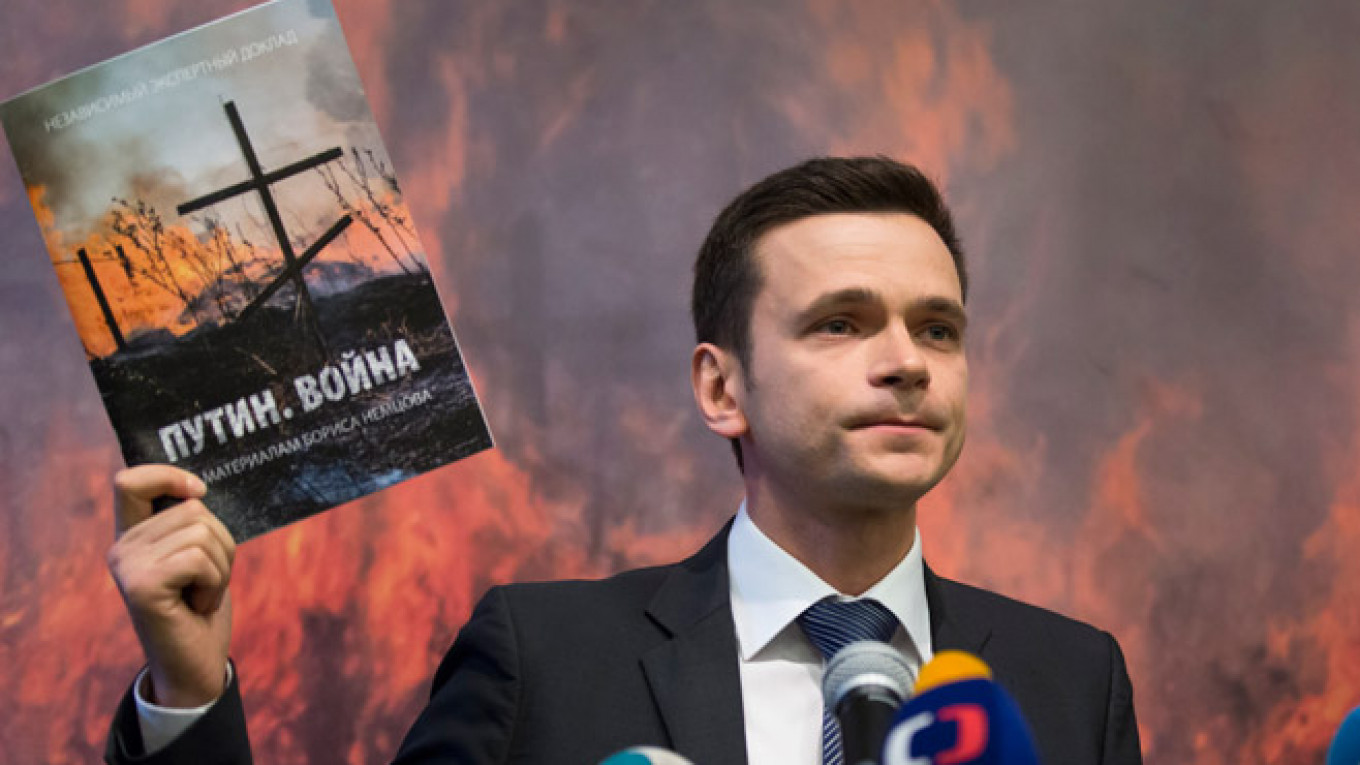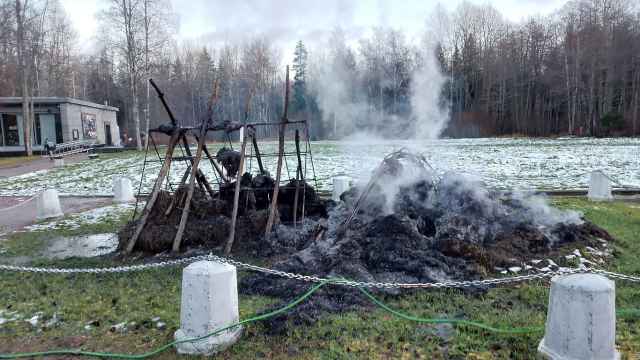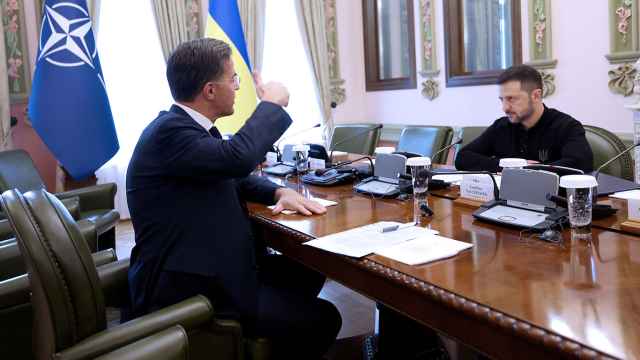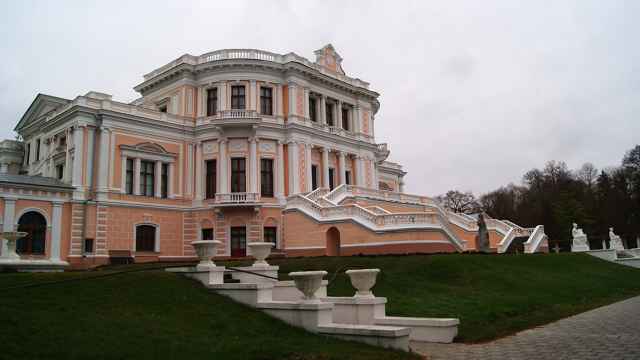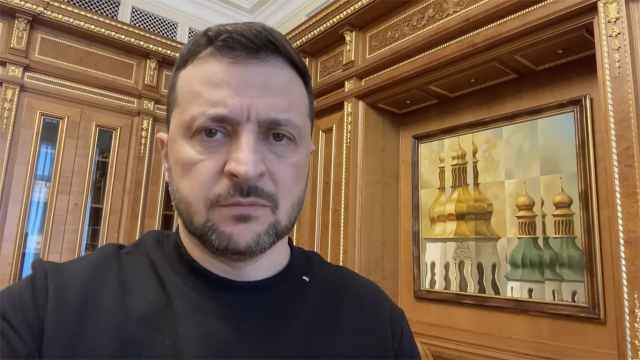Russian opposition leaders published Tuesday a report initiated by slain Kremlin critic Boris Nemtsov that details alleged Kremlin military involvement in Ukraine and claims hundreds of Russian soldiers have been killed fighting troops loyal to the Kiev government.
Entitled "Putin. War," the 65-page report uses open source material, testimony from soldiers and their relatives and statements from officials to paint a picture of Russia's presence in Ukraine.
A group of journalists and opposition leaders completed the report after Nemtsov was gunned down by the Kremlin walls in a Feb. 27 attack. Some link his research on the subject to his assassination.
"We have gathered exhaustive evidence of the presence of Russian troops in Ukraine," opposition activist and senior member of the opposition RPR-Parnas Party Ilya Yashin said at presentation of the document in Moscow. "This report has one aim: to tell people the truth."
President Vladimir Putin has repeatedly denied Russian troops are operating in eastern Ukraine, where sporadic violence continues despite a cease-fire agreed in February. Putin's spokesman Dmitry Peskov said Tuesday that he had not read the report, Russia's Interfax news agency reported.
According to the document, more than 150 Russian soldiers were killed in August last year as an advance by Ukrainian forces was brought to a bloody halt amid fighting around the town of Ilovaisk, while about another 70 were killed in January and February during a battle around the strategic rail hub of Debaltseve.
"From the very beginning of the conflict the Russian authorities have carefully hidden details about the deaths of citizens of the Russian Federation on the territory of Ukraine," the report said, adding that major separatist military successes were linked to influxes of Russian troops.
As well as sending regular troops, the report alleges the Kremlin organized the recruitment of mercenary brigades in eastern Ukraine where individual soldiers were paid between 60,000 rubles ($1,184) and 90,000 rubles ($1,776) per month. Men in these units were recruited with the help of public groups loyal to the authorities, and paid through funds backed by the Kremlin, the report said.
The report also contains a section written by economist and former Central Bank deputy chairman Sergei Aleksashenko about the financial cost of Russia's role in Ukraine.
Aleksashenko estimated that Russia spent 53 billion rubles ($1 billion) to provide men and materials for the war in southeastern Ukraine, 80 billion rubles ($1.6 billion) to help Ukrainian refugees and 2 trillion rubles ($39.4 billion) on subsidies for Crimea, the formerly Ukrainian peninsula annexed by Moscow between February and March 2014 with the help of Russian soldiers.
Other sections in the report address the role of Russian propaganda, the humanitarian crisis in eastern Ukraine, the downing of Malaysian Airlines flight MH17 and the process of the annexation of Crimea.
The report's co-authors said that their main aim was to inform people about Russia's involvement in Ukraine, and highlight Putin's changing rhetoric over the role of Russian troops.
Nemtsov produced several similar documents, including one looking at corruption ahead of the 2014 Winter Olympics in Sochi, in recent years. Yashin said Tuesday that similar reports would continue to be produced, with the next one likely to focus on Chechen strongman Ramzan Kadyrov.
Just 2,000 copies of the report have been printed. Organizers are looking to raise funds inside Russia for a larger print run. The report is also available online.
Yashin told reporters that there were difficulties expanding and realizing Nemtsov's work because witnesses were afraid to speak out, researchers had been threatened, and that there had been problems finding a company willing to print the document. The report was unavailable online for much of Tuesday because of what Yashin wrote on Twitter was a denial-of-service (DoS) attack.
"They can't shut our mouths," said Yashin. "Are we scared? We're not crazy."
Contact the author at h.amos@imedia.ru
A Message from The Moscow Times:
Dear readers,
We are facing unprecedented challenges. Russia's Prosecutor General's Office has designated The Moscow Times as an "undesirable" organization, criminalizing our work and putting our staff at risk of prosecution. This follows our earlier unjust labeling as a "foreign agent."
These actions are direct attempts to silence independent journalism in Russia. The authorities claim our work "discredits the decisions of the Russian leadership." We see things differently: we strive to provide accurate, unbiased reporting on Russia.
We, the journalists of The Moscow Times, refuse to be silenced. But to continue our work, we need your help.
Your support, no matter how small, makes a world of difference. If you can, please support us monthly starting from just $2. It's quick to set up, and every contribution makes a significant impact.
By supporting The Moscow Times, you're defending open, independent journalism in the face of repression. Thank you for standing with us.
Remind me later.



